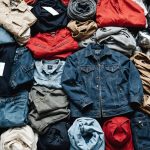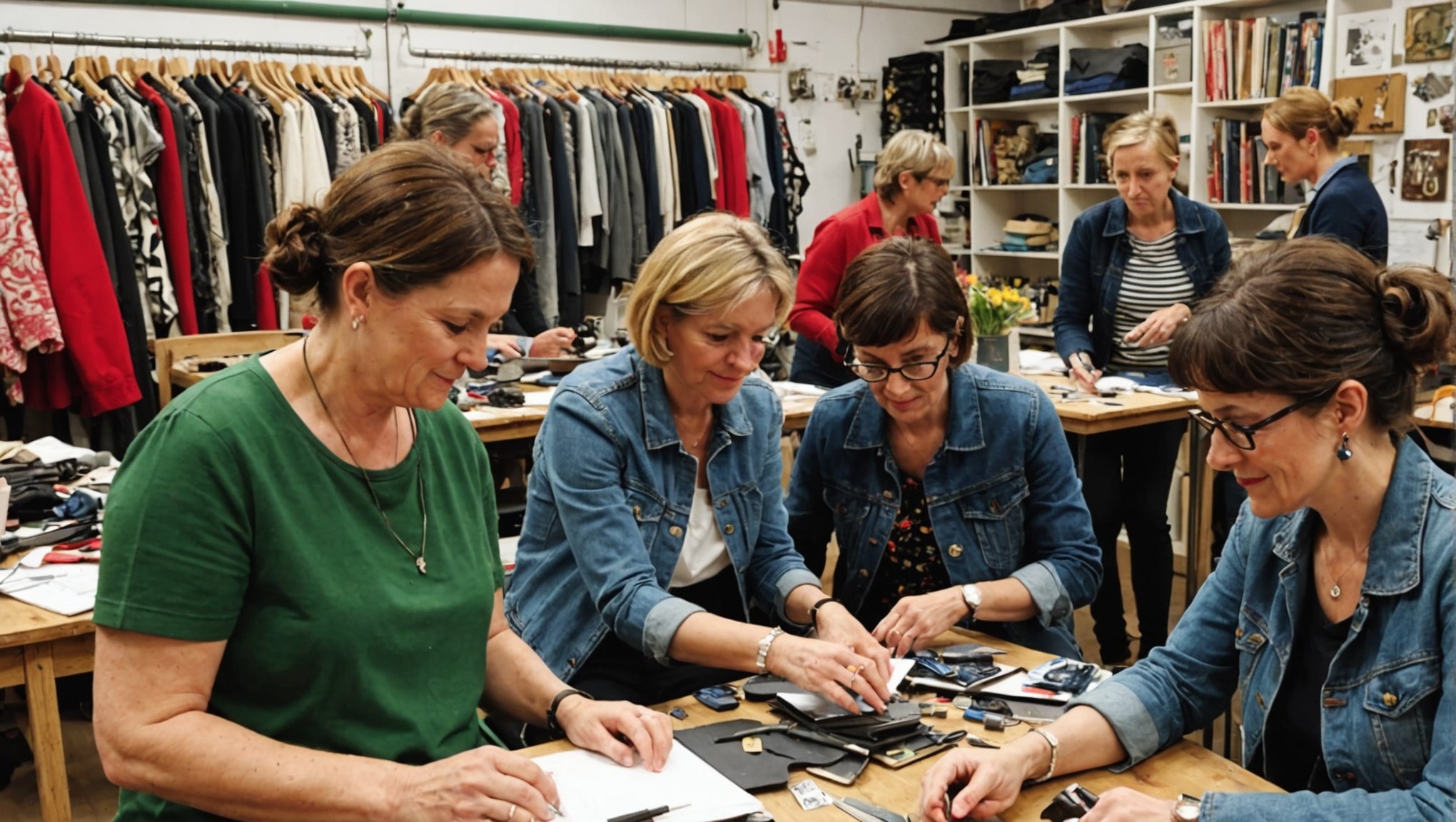Overview of Fashion Upcycling Workshops in London
Fashion upcycling is a creative and sustainable approach to giving old clothes a new life. This practice is gaining traction in the fashion industry as it offers an innovative solution to combat environmental waste. London, known for its vibrant fashion scene, hosts numerous fashion upcycling workshops as part of its array of sustainability-focused events. These workshops are designed not only to teach attendees new skills but also to foster a strong community of like-minded individuals committed to changing the way we consume fashion.
In London, fashion upcycling workshops have become a hub for enthusiasts who wish to learn and engage in creative sustainability practices. Participants are encouraged to bring their own garments, transforming them into unique, fashionable pieces. From altering silhouettes to embellishing with accessories, these workshops provide the tools and inspiration necessary to repurpose fashion items effectively.
Have you seen this : Discover the Best Spots for Bespoke Knitwear in the UK: Your Ultimate Guide!
Community engagement is a critical component of these events. They offer opportunities for learning, creativity, and networking as participants share ideas and techniques. By involving the community in such initiatives, London is not only promoting a sustainable future but also nurturing talents and encouraging individual expressions within its flourishing fashion community.
Upcoming Fashion Upcycling Workshops
Stay ahead in fashion by exploring upcoming workshops dedicated to the art of upcycling. Attending these events promises not only innovative learning but also insight into sustainable practices.
Also to discover : Unleash your inner dino with stylish clothes and accessories
Workshop Title 1
This workshop will take place on 12th November, from 10 AM to 2 PM at the Green Hub Studio. Participants can expect to learn the fundamentals of transforming discarded fabrics into wearable art. The session is led by Emma Greenfield, a renowned eco-fashion designer known for her sustainable style insights.
Workshop Title 2
Scheduled for 19th November from 11 AM at City College of Arts, this workshop delves into advanced techniques. Participants will explore different materials, from denim scraps to leather patches, offering creative freedoms. With a limited space of 25 participants, early registration is essential to secure a spot.
Workshop Title 3
Join this unique workshop on 25th November, 9 AM at The Circular Loft. Unlike any other, this session focuses on creating eco-friendly accessories, including bespoke handbags and jewellery. Attendees are expected to leave with both finished pieces and the skills to replicate projects at home.
Benefits of Participating in Fashion Upcycling Workshops
Participating in fashion upcycling workshops offers numerous benefits of upcycling that are both practical and fulfilling. For starters, attendees inevitably develop their practical sewing and crafting skills. These workshops often focus on hands-on activities, allowing participants to practice stitching techniques, pattern-making, and fabric manipulation. Such skills are not only useful for fashion endeavors but also applicable in everyday repairs and alterations.
Moreover, upcycling workshops unleash your creative skills by encouraging exploration in fashion design. Participants have the opportunity to transform old or unused garments into unique pieces, pushing the boundaries of conventional fashion. This process not only nurtures creativity but also boosts confidence as individuals see their visions come to life in wearable art.
Another significant advantage is the positive environmental impact associated with these workshops. By learning to upcycle, participants contribute to sustainability and actively help in the reduction of textile waste, a growing global concern. By repurposing materials, the demand for new fabric production decreases, which in turn diminishes environmental strain.
Ultimately, fashion upcycling workshops are not just about clothing; they are about learning valuable skills, embracing creativity, and supporting sustainable practices that benefit both individuals and the planet.
Costs and Registration Information
Attending workshops often involves several costs. Understanding the workshop costs can help prepare prospective attendees. Typically, these fees cover things such as material expenses, venue hire, and instructor fees. Some workshops may also incur administrative charges.
For those looking to reduce expenses, there may be discounts or scholarships available. Often, students, early registrants, or group attendees can access reduced rates. It’s worthwhile to inquire about any scholarship opportunities to further ease the financial load.
Navigating the registration process is a crucial step. Follow this step-by-step guide to ensure a smooth experience:
- Visit the official website of the workshop.
- Look for the “Register” or “Sign Up” option.
- Complete the registration form with accurate personal details.
- Review any available payment options. Most platforms offer credit card or bank transfer options.
- Enter any applicable discount codes or choose a scholarship if available.
- Confirm your registration by checking the email confirmation sent post-registration.
Understanding these elements not only facilitates a hassle-free registration but also helps in planning financial aspects effectively, ensuring a rewarding workshop experience.
Insights into the Upcycling Process
Upcycling techniques are gaining popularity in workshops around the world, as more individuals seek creative and sustainable ways to transform old items into new treasures. One of the most admired techniques taught is fabric manipulation, where textiles are altered through cutting, stitching, and dyeing to create unique fashion pieces. Another technique often spotlighted is repurposing items by combining them with others to craft something revolutionary yet eco-friendly.
In these projects, materials like denim, cotton, and even plastic are commonly used. Denim, with its durability and versatile texture, finds new life as bags or patchwork jackets, while cotton shirts may be transformed into quilts or pillow covers. Plastic, often regarded as waste, is cleverly turned into quirky accessories or bold home decor with the right crafting methods.
The environmental benefits of adopting sustainable practices in upcycling are substantial. By choosing upcycled fashion items, you help reduce waste, decrease reliance on new resources, and lower carbon footprints. Additionally, these actions foster a mindset of conservation and creativity, driving consumer demand from fast fashion toward more sustainable practices. By embracing upcycling, not only do we breathe new life into old items, but we also contribute positively to the planet’s well-being.
Testimonials and Experiences from Past Participants
Reading through participant reviews offers a rich perspective on the uplifting journey that is upcycled fashion. Many attendees have expressed a deep appreciation for the workshop experiences, noting transformative personal growth and creativity.
Community feedback often highlights stories that paint a vivid picture of attendees’ journeys. For instance, one participant transformed a faded denim jacket into a vibrant bespoke piece, which sparked a newfound passion for sustainable fashion. These hands-on experiences reveal not only the joy of creation but also an increased awareness and commitment to environmental responsibility.
Participants frequently recommend that newcomers dive into the upcycling community in London with an open mind. Being patient with the process is crucial. Many have found that the workshops serve as a catalyst for innovation and provide a welcoming environment to experiment and learn from peers.
Experience sharing is a cornerstone of these workshops, fostering a sense of camaraderie and ongoing encouragement. The positive community spirit, coupled with expert-led guidance, empowers individuals to harness their creative potential fully. This interplay of expert advice and peer support serves as a beacon for anyone looking to begin their upcycling journey.











